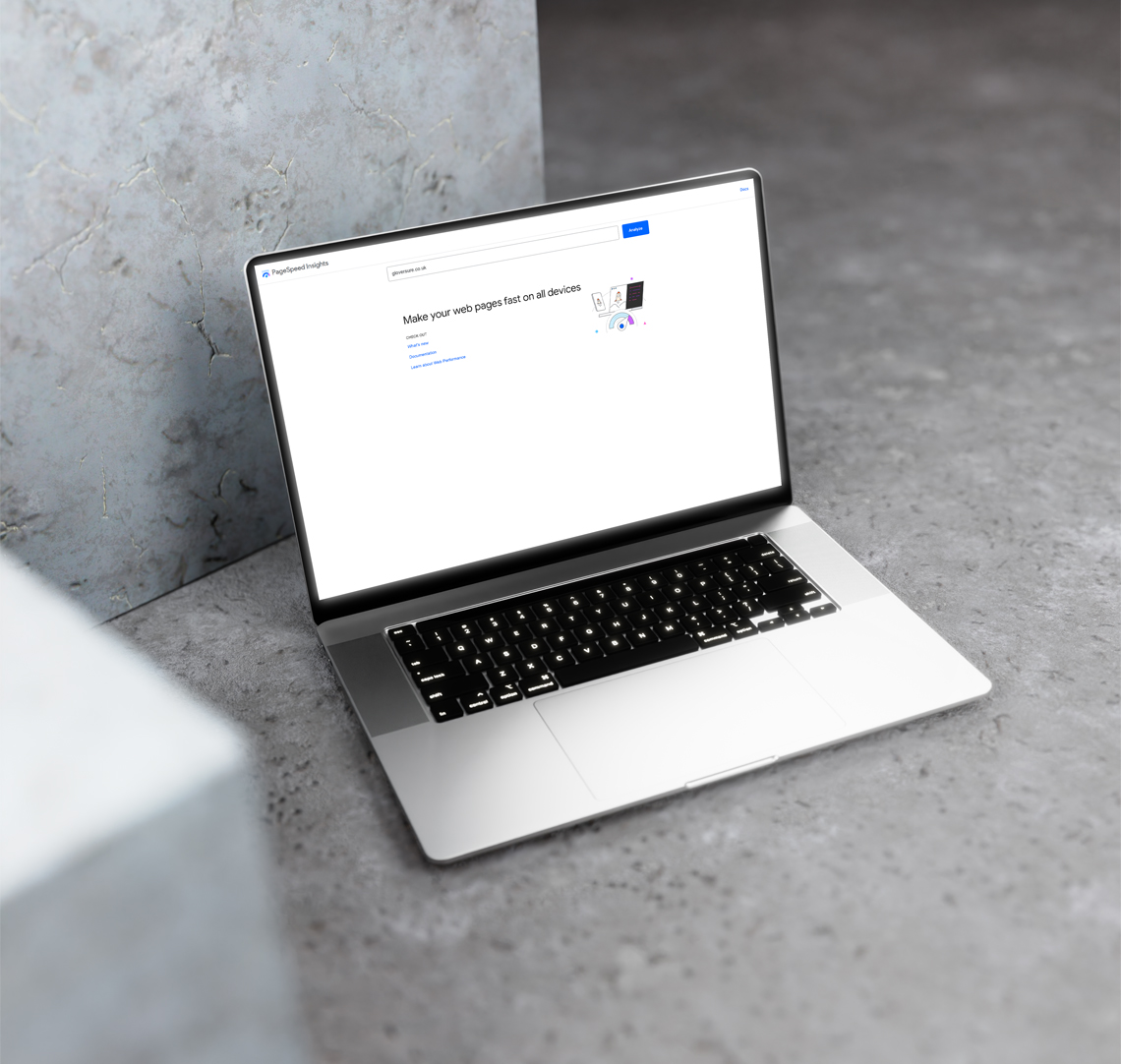
11th April 2025
By Robyn Crowther
4 mins read
Why High Page Speeds Are Crucial for Your Website’s Success

Boost User Experience, SEO Rankings, and Conversions with Faster Load Times
In today’s fast-paced digital world, website visitors expect instant results. A slow-loading site can drive potential customers away, increase bounce rates, and negatively impact your rankings on Google. If you want to attract and retain customers, high page speeds should be a top priority. Let’s explore why website speed matters and how gloversure has helped clients improve their performance.

The Impact of Page Speed on SEO & Conversions
Google considers page speed as a ranking factor, meaning that faster websites are more likely to appear at the top of search results, increasing visibility and organic traffic. A slow site frustrates users, causing them to leave before they even see your content. Fast-loading pages keep visitors engaged, improving their overall experience.
Studies show that even a 1-second delay in page load time can reduce conversions significantly. Amazon found that a 100-millisecond delay in load time could cost them 1% in sales. For smaller businesses, this means potential customers could leave before making a purchase, leading to lost revenue and lower engagement. If your site takes too long to load, users will click away and look for alternatives, increasing bounce rates and reducing customer retention.

The Technical Side: What Slows Down Your Website?
Several factors can contribute to slow page speeds, including unoptimised images, excessive HTTP requests, slow server response times, and large JavaScript or CSS files. Many websites also suffer from poor caching strategies or excessive use of third-party scripts, which can drastically impact performance.
A key issue we often see is render-blocking resources, which delay the loading of crucial visual elements. This happens when browsers must wait for CSS or JavaScript files to fully load before displaying content. Addressing these bottlenecks through code optimisation and asynchronous loading can lead to substantial improvements.

Real-Life Example: How gloversure Boosted Page Speed
At gloversure, we prioritise website performance. A great example is our work with our new website. We created the website using the latest technologies, which played a key role in its performance improvements. By adopting modern frameworks, optimising code, and implementing advanced caching techniques, we ensured faster load times and a seamless user experience. The use of next-generation image formats, such as WebP, combined with lazy loading, significantly reduced page load times. Additionally, we refined the website’s functionality by removing unnecessary scripts and plugins, ensuring efficiency without sacrificing features. These enhancements resulted in a more responsive, high-performing website that delivers better engagement and improved search rankings.

How to Improve Your Website’s Speed
To ensure your website loads quickly, it’s essential to use a fast hosting provider, compress and optimise images, enable browser caching, and reduce unnecessary plugins and scripts. Implementing a Content Delivery Network (CDN) can also help distribute content efficiently. Another effective strategy is minifying CSS, JavaScript, and HTML to eliminate unnecessary characters and reduce file sizes.
Additionally, testing website speed regularly using tools like Google PageSpeed Insights or GTmetrix can help you identify areas for improvement. Monitoring performance ensures that any future updates or added content do not negatively impact your site’s speed.

Mobile Page Speed: Why It Matters Even More
With the rise of mobile browsing, ensuring a fast mobile experience is just as crucial as desktop speed. Google’s Mobile-First Indexing means that your mobile site performance directly impacts your rankings. If your mobile site is slow, you may lose a significant portion of your audience.
Techniques such as AMP (Accelerated Mobile Pages), responsive image scaling, and reducing unnecessary scripts can greatly enhance mobile performance. Given that over 50% of web traffic comes from mobile devices, a slow mobile experience could cost you conversions.

The Business Case: How Faster Websites Improve Revenue
Speed isn’t just a technical metric - it has a direct impact on your bottom line. Studies have shown that faster websites lead to:
• Higher engagement rates
• Increased conversion rates
• Lower bounce rates
Improved customer satisfaction
For eCommerce businesses, this is even more critical. Customers expect fast checkout experiences, and any delay can lead to abandoned carts. By optimising speed, businesses can significantly enhance their online revenue potential.

Get a Faster Website with gloversure
Speed isn’t just a technical metric - it has a direct impact on your bottom line. Studies have shown that faster websites lead to:
At gloversure, we specialise in high page speeds and performance optimisation. Whether you’re struggling with slow load times or want to enhance your SEO, we can help. A fast website leads to better rankings, improved conversions, and a seamless user experience. Contact us today to get started on a faster, more efficient website.
Ready to speed up your website? Get in touch today!


